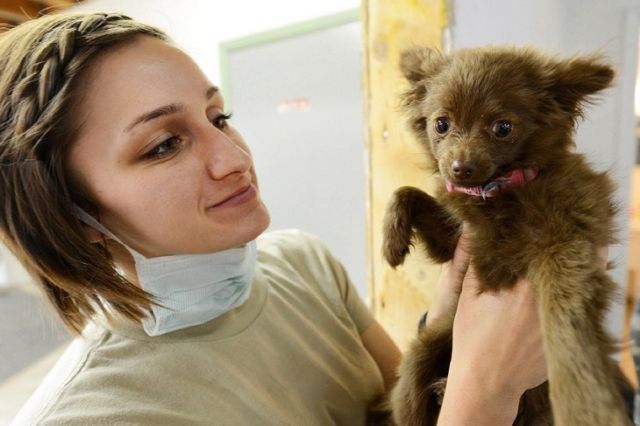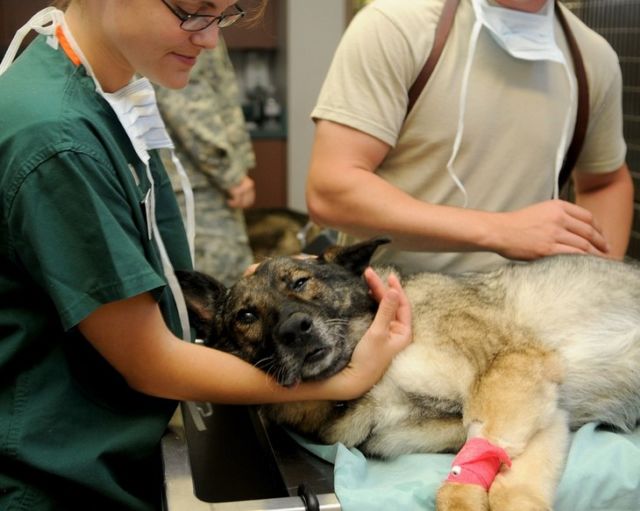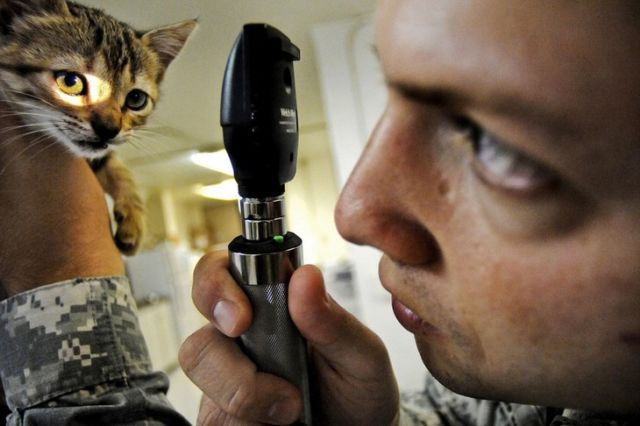Anyone who has a pet knows that veterinarian visits are commonplace due to annual treatments, routine check-ups, and, of course, unexpected events such as illnesses. However, most of us don’t listen to the valuable things these skilled professionals have to tell us. We are confident that we have all the information we need to care for our animals. Therefore, in many, many cases, people find themselves coming to the vet as a last resort. However, this situation can change if you just listen to what the vets have to tell you and apply it. To be in the know, you better read the 12 things that veterinarians want to tell you – the pet owner.

1. Fleas are active all year round
Many of us assume that parasites like fleas are only an issue during the summer, but according to some veterinarians, this is not the case. Dr. Linda Guelmann, a specialist in the field, has documented dogs needing treatment for fleas even during the winter months. For this reason, Guelmann encourages pet owners to stay up to date with their pet’s health and to do regular screenings for fleas. Even though people are more aware of flea prevention in the summer, it is still necessary to maintain treatments throughout the colder seasons. This will lessen the chance of fleas appearing during the hotter days.
2. Paw-licking doesn’t always mean boredom
Pets lick their paws all the time, and we might assume that they are simply passing the time. While this can be the case in some situations, there is a more concerning cause to consider – relentless itching can be caused by an allergic reaction. Dr. Guelmann states that some breeds of cats and dogs are more likely to do this than others. Therefore, it is wise to speak to your vet to determine why your pet licks its paws.

3. Your pets shouldn’t have bad breath
It is often thought that bad breath in animals is a natural occurrence, however many veterinarians disagree. In the majority of cases, foul-smelling breath is due to dental, gum, or mouth conditions, and not the pet’s diet. If these matters are disregarded, the outcome can be damaging and even life-threatening, so it is advisable to consult a veterinarian if your pet has bad breath. Most animals endure oral illnesses at least once in their lives, so it is critical to be aware of their respiratory, gum, and dental health, and to have regular check-ups. Yearly inspections are imperative.
4. Yearly check-ups are a must
When selecting an animal companion, most people will take them to the vet for vaccinations and needed medication. Nevertheless, veterinary professionals contend that regular, yearly check-ups are even more important than immunizations for tracking a pet’s weight, dental health, and overall well-being. In addition, veterinarians search for visible signs that might point to issues such as kidney failure. These should be identified as soon as possible, so they advise visiting at least once a year. Moreover, if the pet is elderly, it is suggested to have a routine visit every six months. Therefore, it is recommended to bring pets to the vet even when there is no pressing need.

5. Go see the vet even when you don’t think you need to
Even though it may not seem essential, taking your pet to a veterinary clinic when it does not require medical attention can be very beneficial. Veterinarians often encourage this in order to create a positive experience for the animal. Pets will feel more at ease if they are familiar with the place, the workers, and the smells. Moreover, staff will be able to do their jobs more efficiently as a result. Visiting the vet when your pet is healthy can help build trust and create an open and honest relationship between you and medical professionals.
6. Honesty and transparency save lives
Many veterinarians have acknowledged that a lot of pet owners often leave out essential information or do not inform the vet of anything at all. Since cats or dogs cannot communicate with the vet what is ailing them, we as owners must describe all the discernible signs. We must answer all the questions the vet might have truthfully. For instance, have you ever administered tablets to your pet? Would you be able to give the prescribed medication to your animal? And a lot of other queries. It is essential to remember that if you are honest with the vet, it will enable them to provide the most effective treatment for your furry friend.

7. Vets do not handle behavioral issues
When we take our pet to the vet, it is typically out of fear that it has contracted an illness. As well as identifying the cause of its behavioral issues. If a dog is constantly biting people and objects, or a cat is scratching, the vet is not the right person to speak to. This is because they are not able to resolve this issue. The exception is if it is a recent development and they are displaying signs such as a lack of appetite that could point to disease. If the animal is aggressive most of the time, a specialist such as a dog trainer, psychologist, or cynologist should be consulted. These specialists are experts in managing behavioral problems in pets.
8. No need to provide vitamins if the pet’s diet is balanced
A large variety of pet foods are available in large packages and are formulated to provide all the necessary vitamins and minerals for a well-rounded diet. This is why many veterinarians suggest that extra vitamins are not required. On the other hand, if you choose to prepare your pet’s food, it is recommended to consult a vet before providing vitamin supplements. It is imperative to listen to professionals to ascertain what vitamins your pet needs.

9. Be careful with raw meat
Generally, those who do not seek advice from specialists when dealing with their animals are likely to commit a lot of errors. One of these errors is feeding raw meat to a cat or dog – such food can be quite dangerous. It is essential to understand that raw meat cannot provide the necessary vitamins and minerals for your pet. Additionally, if you have been feeding your pet dry food, suddenly switching to uncooked food can lead to diarrhea or a disturbance in the microbial balance in the pet’s digestive system.
10. Human medicines should not be administered to pets
Similarly to how we need to keep children away from our own pills and medications, the same should be done with our pets. Remember to hide any medications, as they can be harmful to pets if they consume them accidentally. There are times when veterinarians may endorse giving animals human medications like antidepressants or chemotherapy tablets. In any situation, it is essential to get the approval of a professional vet before giving the pet medicine that you take yourself.

11. Flexi straps are generally a risky choice for your pet
Flexi straps are very popular among many pet owners, especially those with dogs, due to the amount of freedom it gives them. This lets them roam around, smell and meet other dogs, which is helpful for anyone who wants their pet to be content. However, there are health concerns when it comes to using these leashes as they can cause injury to animals. Veterinarians have reported cases of spine problems due to the pressure of the strap. Accidents can occur if the leash is long enough and gets tangled when pets are playing with other animals. This can be dangerous, as it can take time for the owner to reach the pet if the game turns aggressive.
12. Putting a pet to sleep is difficult, but sometimes needed
Making the decision to anesthetize a beloved pet can be an incredibly difficult and sorrowful process for both the owner and the vet performing the task. It may seem like you can always delay the decision and try other treatments, but at the end of the day, you will still feel responsible. If your pet is suffering from an incurable illness and you have exhausted all treatments such as surgery and medication, but the condition still has not improved, it is often best to put the animal to sleep so that it does not experience any more pain. Remember, if you have already made the decision, stay with your pet as long as you can leading up to the injection. You and your pet both deserve to be together until the very end.

